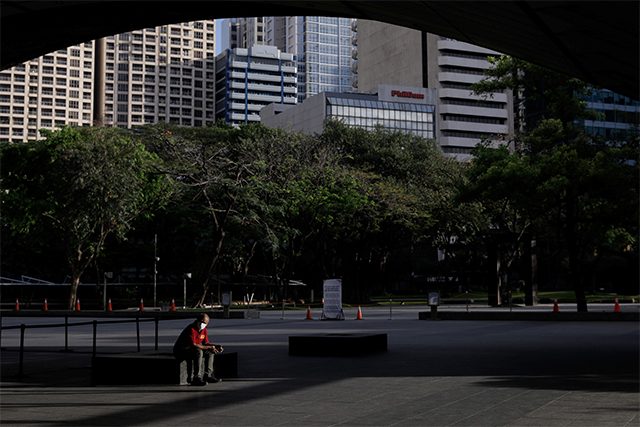
MANILA/SINGAPORE—- The Philippine Stock Exchange closed indefinitely on Tuesday while currency and bond trading were suspended, the first shutdown of markets worldwide in response to the coronavirus, with authorities citing risks to the safety of traders.
The move comes after some bourses around the world closed trading floors or paused trade after withering falls in market value. It is the first blanket market halt.
And while the Philippine shutdown was prompted by health reasons, amid a broad nationwide lockdown, it raises the prospect other exchanges may follow and has drawn analysts’ attention.
“Given the unprecedented speed of the slump in equity prices, it has been suggested that stock exchanges might be closed soon if things don’t turn around,” research house Capital Economics said in a note on Tuesday.
Global markets are in meltdown as the pandemic spreads, with roughly $14 trillion in shareholder value erased and even safe assets such as gold have been sold to cover losses.
AdMacro research head Patrick Perret-Green had also raised the possibility in a note issued over the weekend, before the Philippines move.
“We have seen it before. I believe we could see it again,” he said. “Governments do not need or want the added stress and distraction at this time.”
The Philippine Stock Exchange said trade was suspended until further notice “to ensure the safety of employees and traders,” amid a broader national lockdown.
National Treasurer Rosalia de Leon cited the lockdown as the reason for the suspension of fixed income trade. Currency trading is to resume on March 18.
In Malaysia, where a similar lockdown comes into force on March 18, the securities regulator said all capital markets will operate as usual.
CME Group Inc last week shut its storied trading floor in Chicago, to reduce large gatherings, and Mideast bourses have taken similar measures, though electronic trade remains available.
China had delayed the resumption of work, including stock market trade, after the Lunar New Year break.
Reprieve or risky?
Opinions are divided, though, on whether a suspension of a stock market that includes giant conglomerates like San Miguel Corp, can actually support sentiment.
Renzo Louie Candano, analyst at DBP-Daiwa Capital Markets in Manila, said it would give investors time to evaluate whether the sell-off is warranted.
Others say it could exacerbate volatility when trading does resume, while possibly hurting the government’s ability to raise funds in the bond market.
“With markets closed, it would be puzzling how additional government bonds would be issued and received by markets,” said Ken Peng, head of Asia investment strategy at Citi Private Bank.
“Especially when investors cannot get liquidity out of their stock and bond holdings.”
The Philippines benchmark index fell 8% on Monday and is down 20% for March so far, already its worst month since October 2008, while bond prices have also collapsed.
The yield on 10-year government debt, which rises when prices fall, jumped 63 basis points on Monday, the sharpest rise since September 2018. —Reporting by Karen Lema and Neil Jerome Morales in Manila, Tom Westbrook in Singapore and Liz Lee in Kuala Lumpur; Editing by Kim Coghill & Shri Navaratnam









